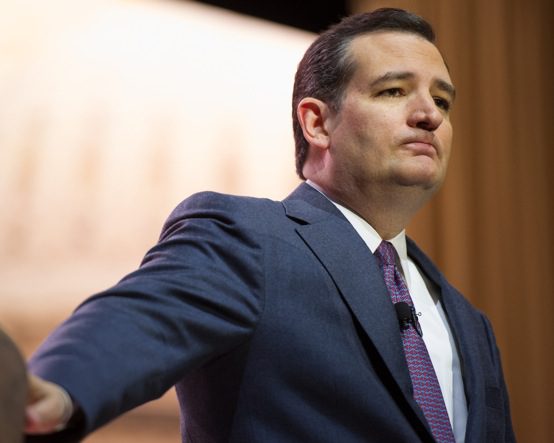Cruz Is Going Nowhere Fast

Jonathan Bernstein pushes back on the idea that Cruz can win the nomination:
But Williamson is assuming Cruz can be nominated. Sure, nothing in politics is impossible. And it’s possible the process has changed substantially, and we just haven’t noticed it; maybe the Republican Party has changed significantly, and we missed it. Barring that, however, everything we know about presidential-nomination politics cuts against Cruz as a plausible candidate.
This is right, and I would just add a few more points. What we know about Republican nomination politics tells us that Cruz is an extreme long-shot candidate. Republicans almost never nominate an insurgent candidate, and they certainly don’t choose to nominate the one with the least experienced in elected office when they have a large number of alternatives available. Many people are comparing Cruz now to Obama in 2007, and there are some similarities, but Cruz is even more of a novice in elected office than Obama was when he announced his candidacy and he doesn’t really have any major issue that he can use to propel his candidacy. There is no significant constituency that Cruz will be able to mobilize on his behalf, and there is no issue that he will be able to “own” to the detriment of his rivals. He suffers from the flaws of being an over-eager junior senator, but he cannot credibly claim to have been prescient about a major national or international issue. Neither does he have any substantive record to run on. The proper question isn’t, “Can Cruz win?” but rather “What’s the point of a Cruz candidacy?”
Ross Douthat has suggested that he could attack his rivals on immigration, and that might allow him to score some points, but with the exception of Bush all of the other candidates are going to take positions on immigration that are almost indistinguishable from Cruz’s. He is positioning himself as an insurgent in a fight with a party leadership that agrees with him on almost all policies, and so there is no particular reason why primary voters should prefer him rather than one of the many other conservative candidates that will also be running.
Williamson makes a crack at the end of his article about Cruz’s Senate primary race against David Dewhurst. Cruz won that race before being elected to the Senate against even weaker opposition. This is supposed to be a clever rebuke to Cruz’s doubters, but it doesn’t prove what Williamson thinks it does. Yes, Cruz was the “anti-establishment” insurgent in the primary race in 2012, the state party backed his opponent, and Cruz still won. This overlooks that Cruz had to first force a run-off and then was able to have a head-to-head contest with Dewhurst. He had the luxury of appealing to a primary electorate that was very well-suited to him, and in the end he had just one opponent. None of this will be true over the next year in the contest for the presidential nomination. There is no run-off in this contest. Cruz will have to compete with perhaps as many as a dozen rivals (or perhaps more), almost all of whom will be more qualified than he is, and all of whom are more personally appealing. He won the Senate primary in large part because the Texas primary electorate welcomed his uncompromising approach, but he won’t get the same reception from voters in the presidential race.
Comments